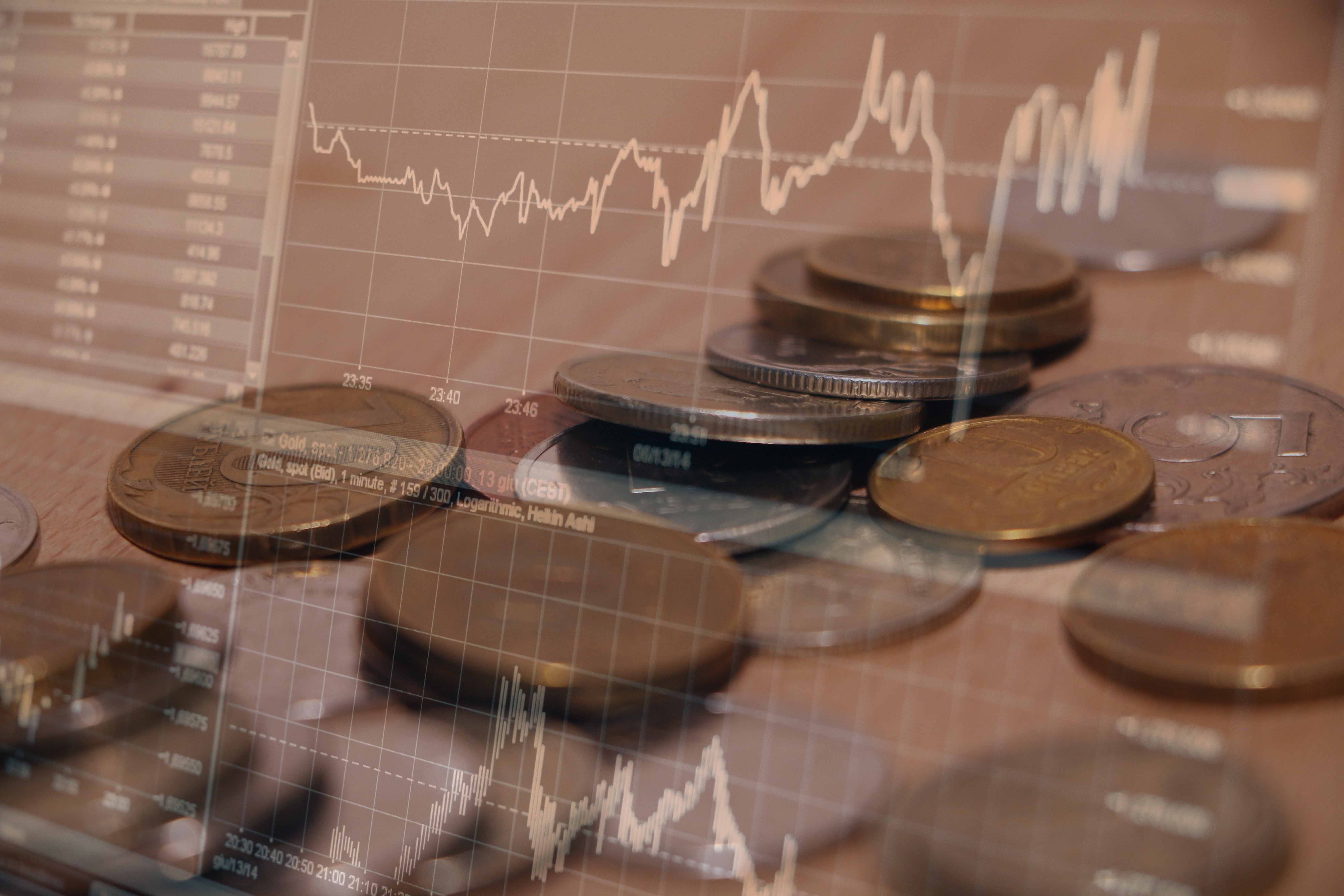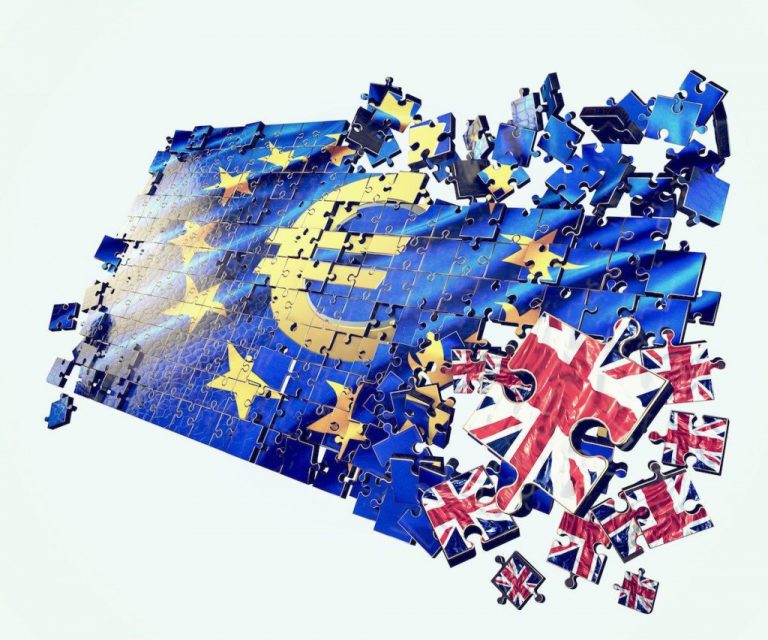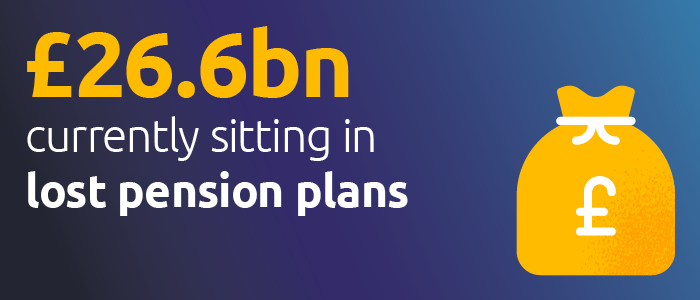Conflict in the Ukraine – what does it mean for investors?
Events in Ukraine have been dominating the news headlines for the last few days, and have had an immediate impact on economies worldwide. Clearly, first and foremost, Russia’s military operation in Ukraine is a tragedy on a human level. But what does the situation mean for investors – find a summary of investment experts opinions below.
Events in Ukraine – in brief
Russian President Vladimir Putin ordered troops into two breakaway regions of eastern Ukraine earlier this week under the guise of a ‘peacekeeping’ mission. This was an escalation of tensions resulting from Ukraine’s wish to join NATO and Russia’s determination to prevent this happening. This morning Russian forces began invading Ukraine from its north, south and east.
It is not hard to see why Putin has his eyes on Ukraine. The country has a wealth of natural resources such as iron ore, coal, shale gas, titanium and uranium. It is also rich in agriculture, producing enough food to feed 600 million people – well over ten times its own population.
Putin said Russia was acting in self-defence and warned that any intervention by outside powers would be met with “consequences that you have never encountered in your history”.
With Russian missile attacks underway and tanks rolling into Ukraine we now wait to see what the Western response will be, in terms of tougher additional sanctions against Russia and more direct support for Ukraine.
Summary – economic impact.
The most significant effect of Russia’s invasion of Ukraine will most likely be on inflation. This was already the key concern for investors and Russia’s military action has pushed up oil and gas prices, which is likely to mean inflation remaining higher for longer.
Brent Crude futures hit $100 per barrel on Thursday for the first time since 2014. Natural gas prices also surged 30% to hit a two-month high of €115 per megawatt hour.weeks and was largely priced in by markets.
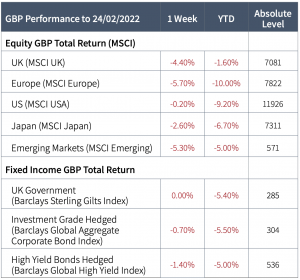
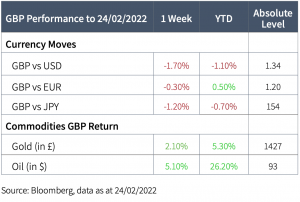
However, it is worth remembering that there are other sources of oil and gas and there are, for instance, suggestions the US may lift sanctions against Iran’s oil and gas industry, which could offset any reduction in supply from Russia.
New sanctions on Russia were unveiled this week with Biden introducing blocks on technology which could severely limit Russia’s ability to advance its military and aerospace sector, as well as, sanctions on Russian banks, and “corrupt billionaires” and their families who are close to the Kremlin. In the UK, Boris Johnson announced an asset freeze against all Russian banks as well as sanctions on more than 100 individuals, entities and their subsidiaries. Russia’s rout on Thursday is the fifth worst plunge in equity market history in local currency terms as investors sold the nation’s assets following the country’s invasion of Ukraine. The benchmark MOEX Russia Index closed 33% lower in Moscow, the first time since 1987 that a sell-off of the same magnitude has hit a market worth more than $50 billion.
Despite the whole situation looking rather gloomy, investment experts overall agree on remaining positive about long term opportunities. Taking a broader view of inflation, they are seeing positive signals on this front. Inflation was driven by a huge increase in demand as many developed economies emerged from the worst of the pandemic. This spike in demand should subside over the coming months, easing inflationary pressure. This could in turn lead to a rebound in areas of the market that have been oversold, such as quality growth companies.
Another positive comes from a closer look at some company performance. Market volatility has been dominated by the situation in Ukraine, but quietly in the background, companies have been reporting earnings and it has been good news. Intercontinental Hotels, Howden Joinery, Anglo American, Rightmove, Anheuser- Busch, Unite and Medtronic all reported strong results and solid outlooks, and saw their share prices being rewarded.
So long as the conflict in Ukraine remains confined to the region, it should have limited effect on global economic growth and, for this reason, short-term volatility should abate and markets should bounce back just as they did after fighting started in Vietnam, Gulf War I, Gulf War II, Afghanistan and the Annexation of the Crimea. In the medium term, these events may delay interest rate hikes and provide further impetus for commodities to rise, giving further support to inflation.
Conclusion
Investment houses generally agree that the multiple factors, currently driving inflation will fade as the year progresses. The pandemic has driven significant distortions to economies, with imbalances between supply and demand for goods and services, and pressure on supply chains globally. But there are signs that these imbalances are starting to moderate, easing current inflation pressures over the coming few months.
While short-term market volatility has impacted the valuations of investor portfolios, there is a longer-term constructive investing environment, with interest rates likely to remain low in absolute terms against an historical context, and a maintained preference for equities over bonds. Additionally, experts are keenly aware of the value in staying invested during periods of market volatility.

